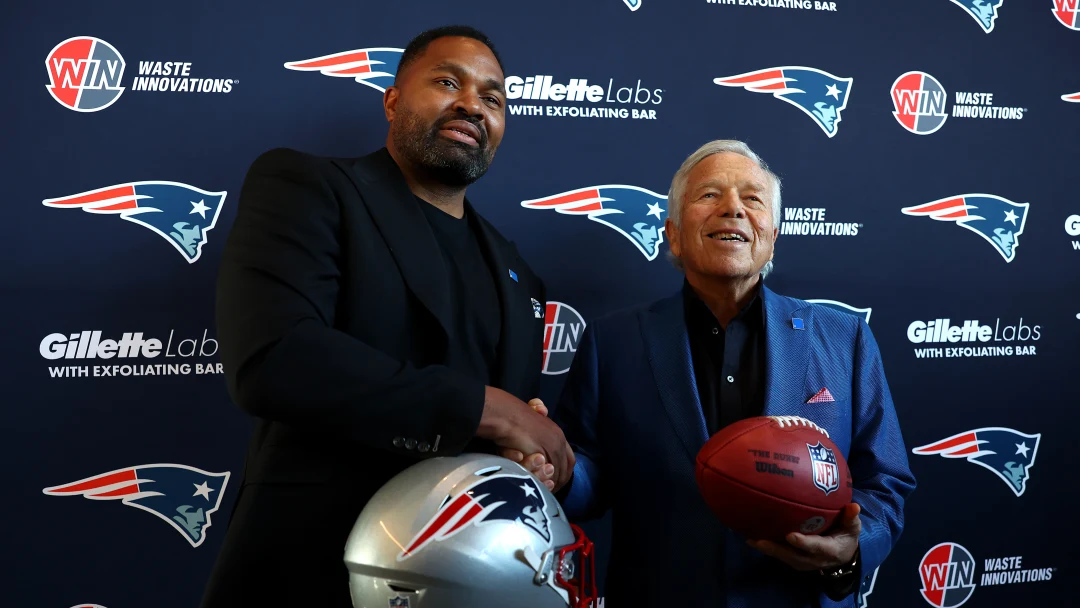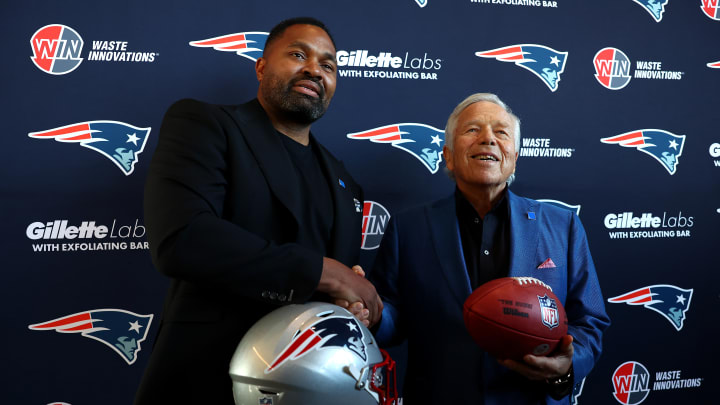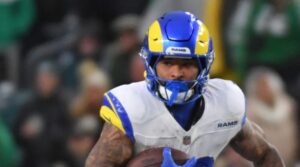
The New England Patriots faced a challenging transition this offseason as they parted ways with long-time coach Bill Belichick and appointed Jerod Mayo as his successor. The organization had been molded by Belichick’s preferences for two decades, making the adjustment difficult for everyone involved. Additionally, the team needed a significant roster overhaul following a disappointing 2023 season.
Despite entering the 2024 offseason with the most cap space in the league ($100 million), the Patriots failed to address their pressing needs for talent at wide receiver, offensive line, and quarterback. With the first wave of free agency signings completed, the Patriots have missed out on top-tier talent, prompting criticism of their strategy and their perceived failure in free agency so far.
Let’s begin with the moves the Patriots did make. They successfully re-signed Michael Onwenu, their top offensive lineman, to a mutually beneficial deal, and retained Hunter Henry on a similar contract, which was a positive move. Additionally, they added depth by signing Chukwuma Okafor, a 27-year-old lineman with a moderate PFF grade from last season, at a reasonable cost. Bringing in Jacoby Brissett to handle veteran quarterback duties and securing Austin Hooper and Antonio Gibson on affordable contracts were also sensible decisions. Generally, it’s common for proficient teams with strong rosters to prioritize retaining their key players while utilizing remaining resources to address supplementary areas.
However, it’s crucial to acknowledge that the Patriots currently lack a strong roster. In such circumstances, a savvy team would recognize the importance of investing more significantly to elevate the overall talent level. While there’s understandable reluctance to overspend on mediocre players, there’s a delicate balance between that caution and potentially missing out on valuable contributors due to excessive concern about overpaying.
The Patriots seem to be leaning towards the latter approach, particularly concerning the wide receiver position. This area has been a persistent weakness for the team for quite some time, and with a significant budget at their disposal, one would expect them to address or at least make strides towards resolving this issue. However, their efforts thus far have been underwhelming. Their most notable move was re-signing Kendrick Bourne to a budget-friendly deal, a move aimed at retaining talent at a position of need. However, Bourne’s recent ACL injury and his role as a borderline No. 2 or solid No. 3 wide receiver highlight the need for additional reinforcements.
The Patriots had been actively pursuing Calvin Ridley, but negotiations dragged on until the last minute, ultimately resulting in Ridley signing a lucrative contract with the Tennessee Titans. Reports suggest that the Patriots, along with the Jacksonville Jaguars, were unwilling to match the $50 million guaranteed offered by the Titans. While there’s a valid argument against committing such a hefty sum to a soon-to-be 30-year-old receiver who had a modest season catching passes from Trevor Lawrence, the concern lies in the team’s apparent shift away from pursuing free agent wideouts entirely in favor of focusing on the upcoming draft.
The current front office’s decision to overlook reinforcing the wide receiver position on a roster where the leading receiver amassed only 561 yards is perplexing. There are numerous viable options available in free agency, such as Hollywood Brown, Tyler Boyd, or even a veteran like Odell Beckham Jr., who could provide a significant upgrade. Even acquiring a journeyman like DJ Chark or Josh Reynolds could bolster the team’s receiving corps.
However, it’s essential to exercise caution in spending money just because it’s available. The Patriots themselves experienced the consequences of this approach three years ago when they invested heavily in Jonnu Smith and Nelson Agholor. Perhaps this past experience is influencing their cautious approach this offseason. Nonetheless, given the team’s subpar performance last year, their reluctance to utilize free agency to address pressing needs is puzzling. It appears that New England is squandering its initial opportunity to revamp the roster post-Belichick, and the reasoning behind this decision remains unclear.






